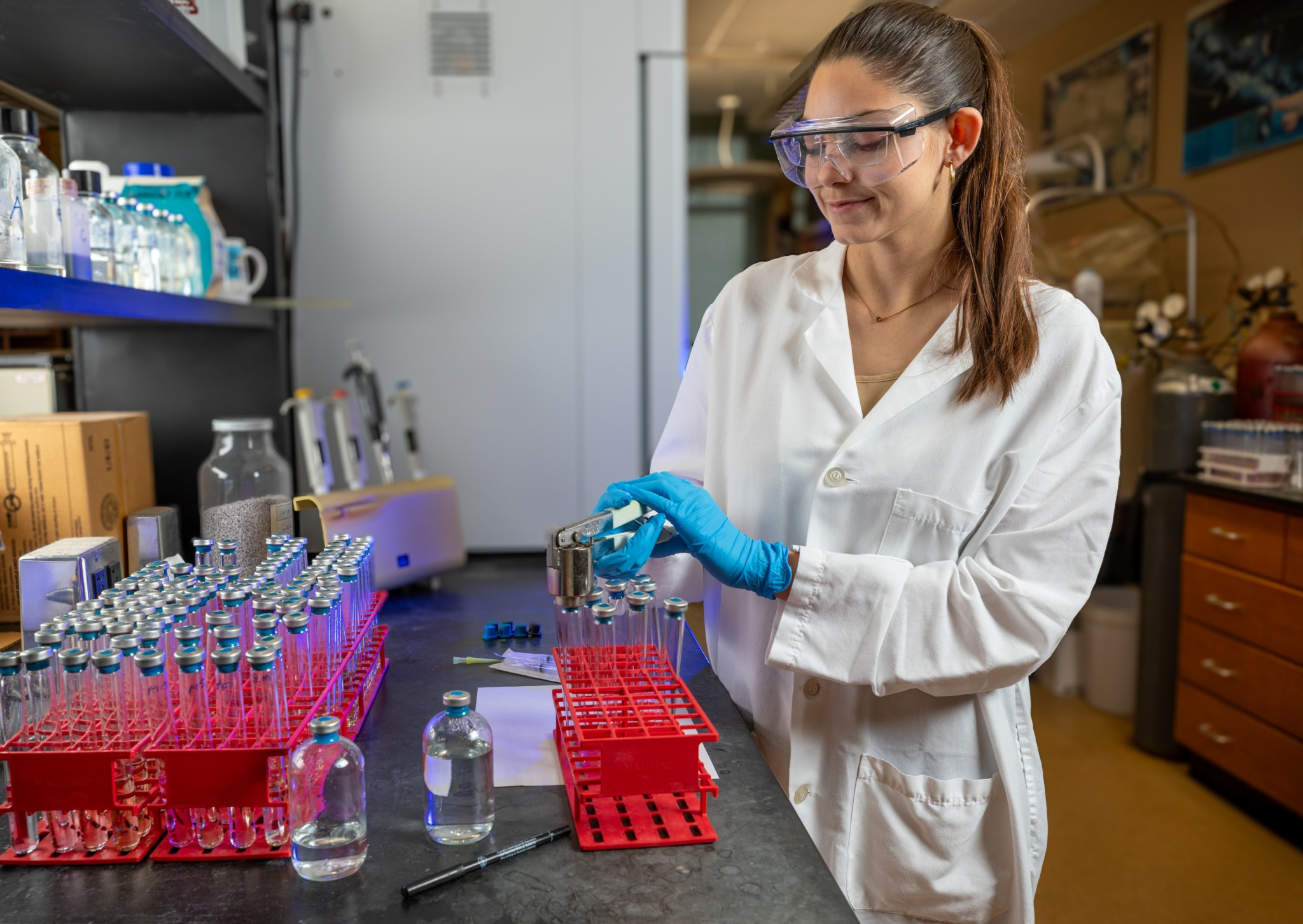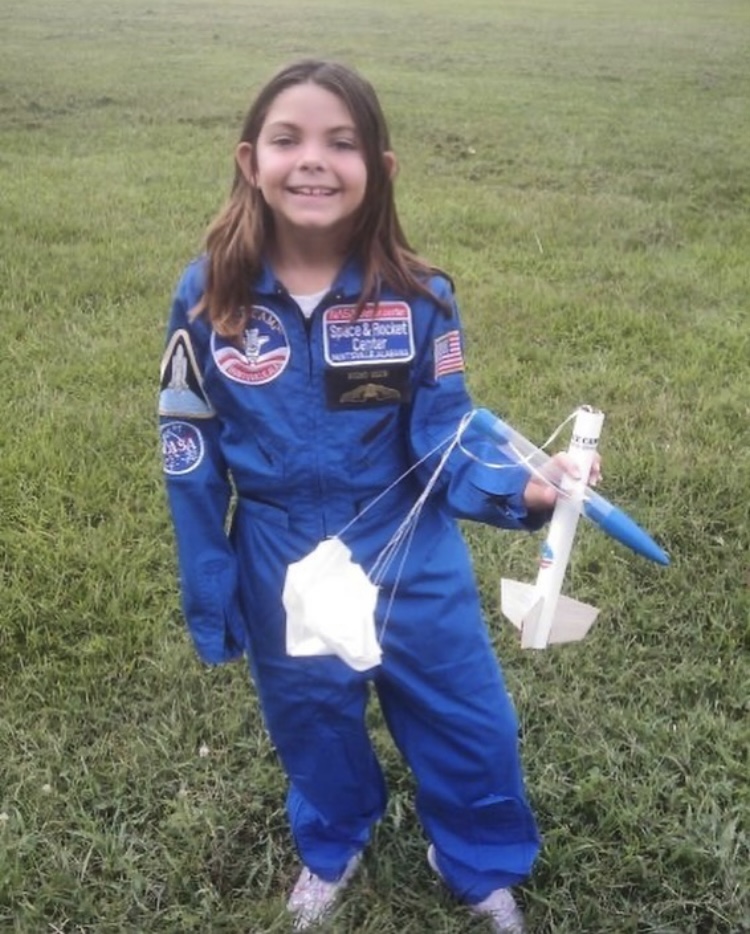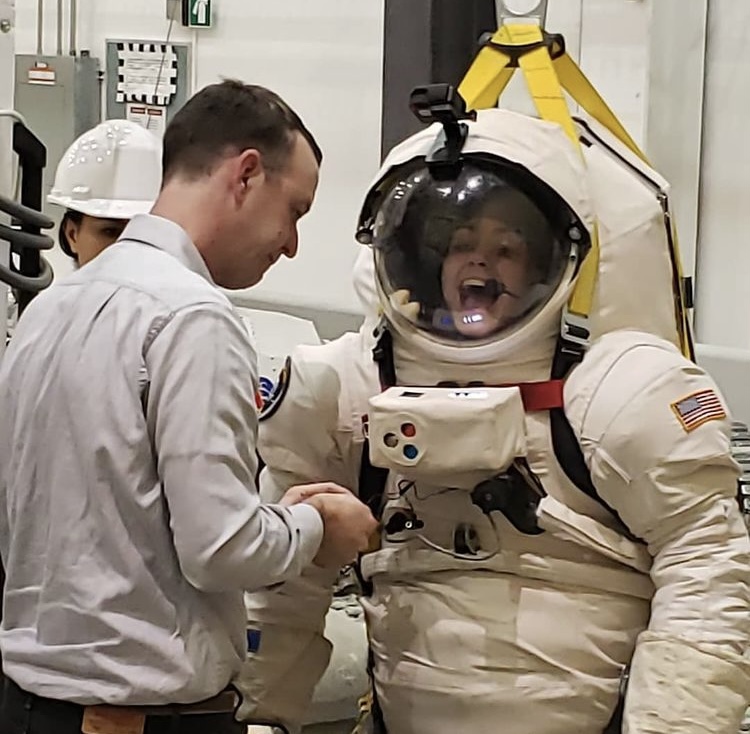Alright – so today we’ve got the honor of introducing you to Alyssa Carson. We think you’ll enjoy our conversation, we’ve shared it below.
Hi Alyssa, thanks for joining us today. We’d love to hear stories from your time in school/training/etc.
Having aspirations of working in the space field I knew education and skills would be important. I got my bachelors degree in astrobiology and am currently in a PhD program in space and planetary science. In order to apply to the astronaut selection process you must hold at least a masters degree so I kept education at the forefront of my interest. Outside of school, I wanted to gain skills and trainings that I thought would apply to the type of work astronauts do. I got my scuba certification, pilots license, skydiving certification, and completed research campaigns on microgravity flights, space suit testing, and underwater analogs.

Alyssa, before we move on to more of these sorts of questions, can you take some time to bring our readers up to speed on you and what you do?
When I was just a little girl, I got very fascinated with space and the idea of becoming an astronaut. I started by just asking questions to my dad about space, but no one in my family had any background on space, science, or anything similar. My dad told me the little bit he knew about going to the moon and I was instantly hooked. Looking back our best guess as to what sparked my curiosity is an episode of the backyardigans which was a Nickelodeon show where these friends went on imaginary adventures in their backyard. One of the episodes was about a mission to Mars. After that initial interest, I continued asking for books, videos, posters, or anything I could find about space. When I was 7 I got to go to space camp with my dad and it was my version of Disney World. I got to ride simulators, meet astronauts, and learn about the history and future of space. After that first space camp, I knew I wanted to do something in the space industry. I grew up always looking for opportunities to get involved in anything space related. As I was working on my own dreams, I also began speaking a teaching other kids about the opportunities there were in the space industry. Public speaking has definitely become a second passion for me and I hope to inspire other kids and students to go after their own dreams.
Any advice for managing a team?
I think working towards a goal that is so far away can be very challenging. I get asked often how I have kept the same passion and determination for space. I think there are several ways to work towards extremely long term goals without getting burnt out. I always found it important to set small milestones and goals. Each step you take is bringing you closer to your goal and that should be celebrated. Whether it was a new certification or even just completing another year of school, I was always excited that I had made a stride toward my big dream. It is also important to have some kind of support system. My dad was a huge support from even when I first said I was interested in space. Even if that person just tells you “you got this” from time to time, it can make a big difference.

If you could go back, would you choose the same profession, specialty, etc.?
I would 100% still choose to work in the space industry. There is so much opportunity for someone to really work on an area that they are passionate about. I currently work primarily in astrobiology specific research but even within that I could study plants in space, exoplanets, chemistry of planets, and much more. If I could go back, I think I would end up in the exact same position. Since there was so much potential, I was always picking and choosing topics that I felt I aligned with. most. During my undergrad, I focused a lot of researching plants in space and the potential of bringing plants as food sources for long term space flight. Although this topic was super interesting, I didn’t think it was the exact type of research I wanted to be doing. Whilst applying for PhD programs, I looked for a place where I could focus on research I was really passionate about. Now I work on microorganisms that their potential for growing in Martian environments. These changes and decisions how allowed me to focus on what I’m most interested in and make me very grateful that I am doing the work that I could always imagine myself doing.
Contact Info:
- Instagram: @nasablueberry
- Facebook: @nasablueberry
- Twitter: @nasablueberry1

Image Credits
University of Arkansas


